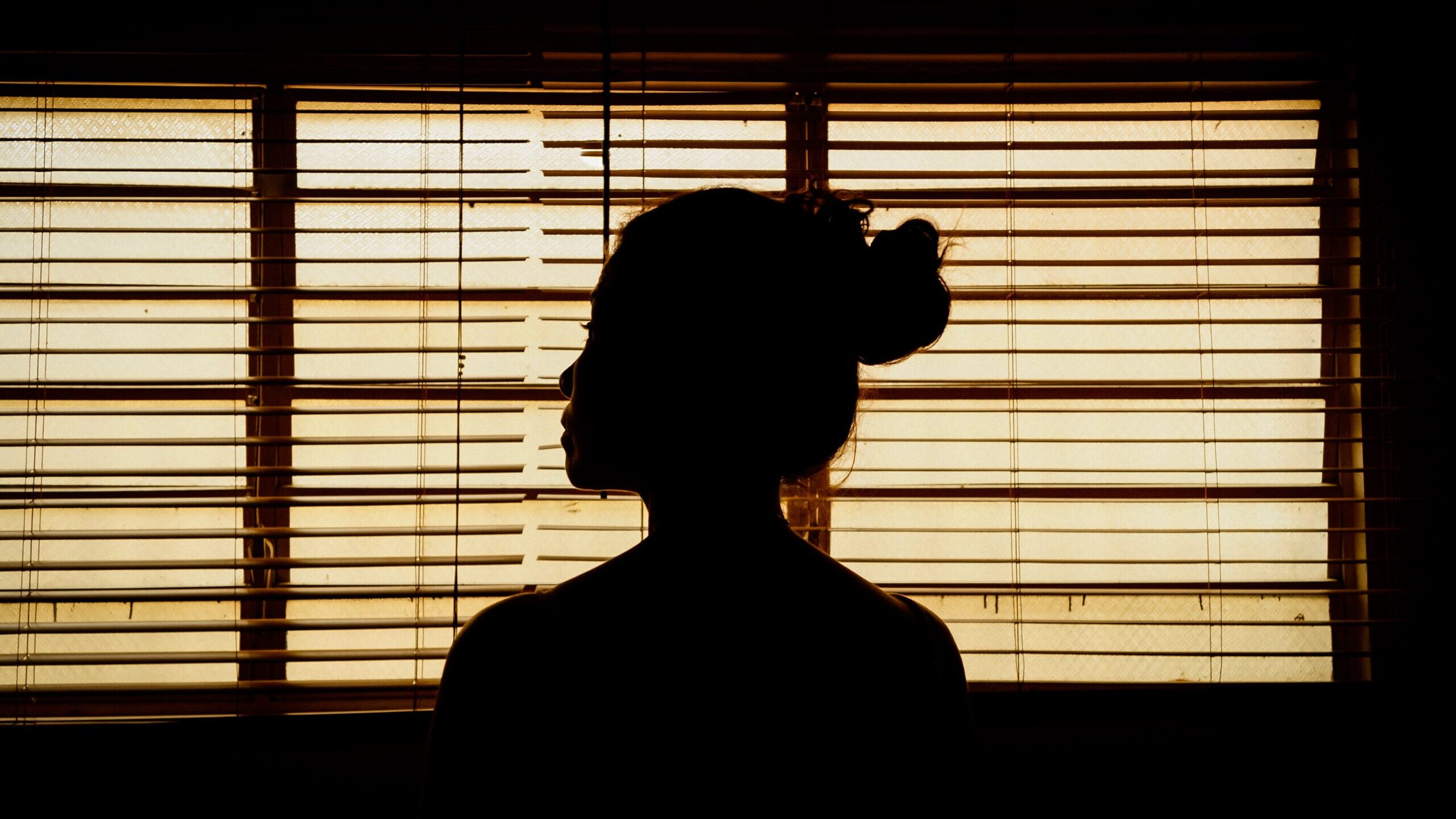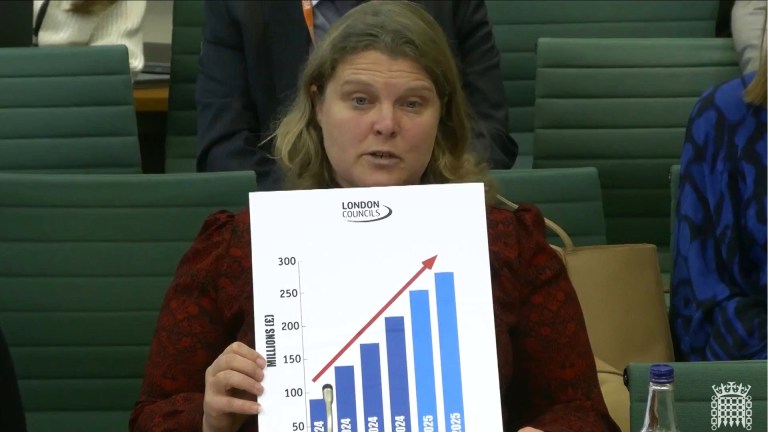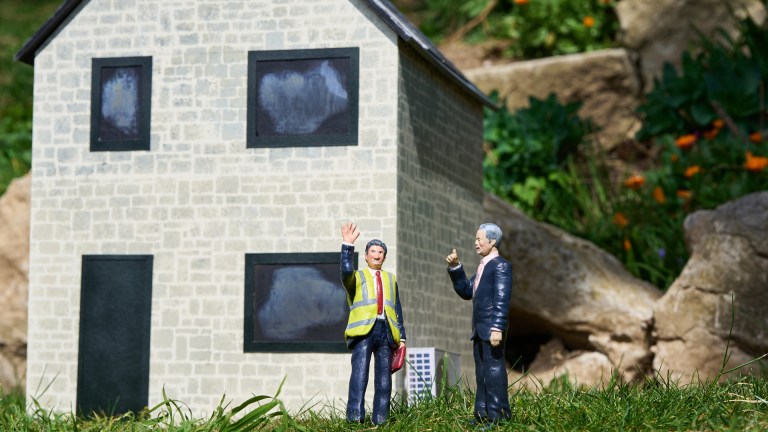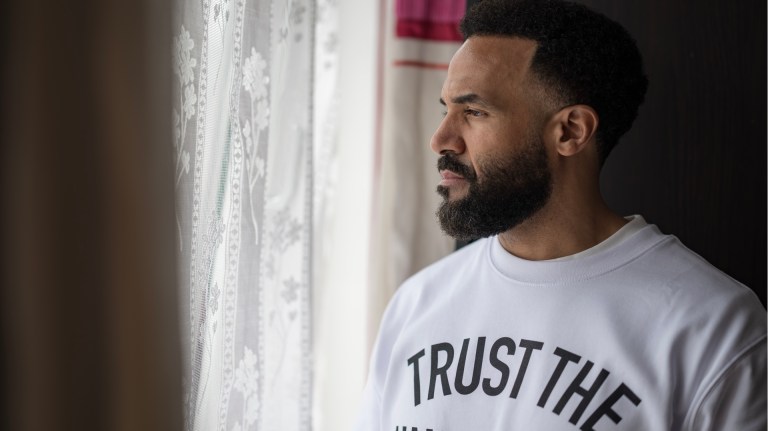Overall, Crisis found 242,000 households across England are experiencing the worst forms of homelessness, including sleeping on the street, sleeping on friends or families’ sofas, or staying in nightly paid B&B.
Downie called on the Westminster government to build the social homes Britain needs to provide housing security to low-income households, and to increase housing benefit.
Your support changes lives. Find out how you can help us help more people by signing up for a subscription
The Department for Levelling Up, Housing and Communities has been approached for comment.
Crisis’ research also emphasised the increasing instability of renting in the private sector, with the overwhelming majority (88%) of councils saying more people are going to Crisis for help after being evicted from privately rented homes.
A spokesperson for the Local Government Association said: “Councils work incredibly hard to prevent the tragedy of homelessness from happening, as well as supporting those who find themselves affected. However, increasingly complex homelessness pressures, combined with depleting social housing stock and an unaffordable private rented sector feels like a perfect storm for already stretched council services.
Advertising helps fund Big Issue’s mission to end poverty
“It is important that the government brings forward its commitment to removing Section 21 evictions, and looks at developing a cross-departmental prevention strategy which addresses the causes of homelessness, particularly unfreezing Local Housing Allowance rates.”
Housing benefit has been frozen since April 2020 and is based on 2018-2019 rent prices. This means that support from the government is falling well below the current soaring cost of housing, at a time when incomes are being stretched by the cost of living crisis.
Professor Suzanne Fitzpatrick, from Heriot-Watt University, the author of Crisis’ report, said “This report highlights how councils across the country are facing an impossible situation. With record numbers of people experiencing homelessness, the vast majority of councils are expecting this already dire situation to become even worse.
“Without access to affordable private rented homes or social housing, we are only going to see more and more households forced into homelessness. We need to address the root causes that are pushing people into homelessness in the first place to ensure that everyone has a safe place to call home.”
Meanwhile, Afghan refugees who have been living in hotel and B&B accommodation since they were evacuated to safety in Britain two years ago are to be moved elsewhere this month. Cabinet Office minister Johnny Mercer announced in March that local councils should transfer Afghans into settled accommodation, in order to cut the cost of hotels to the taxpayer, which stood at £1 million a day.
Get the latest news and insight into how the Big Issue magazine is made by signing up for the Inside Big Issue newsletter
Advertising helps fund Big Issue’s mission to end poverty
One in five Afghan evacuees who have since been evicted from hotel accommodation in England have presented as homeless to their local council, the Local Government Association has said. It believes the situation “will likely get worse in the coming weeks”, and has called on the government to keep hotel places open for those who need them.
A government spokesperson said £2 billion has been given to local authorities over three years to help local authorities tackle homelessness and rough sleeping, targeted to areas where it is needed most.
“Temporary accommodation ensures no family is without a roof over their head, but we have been clear that the use of B&Bs should always be a last resort.
“We are set to spend over £30 billion on housing support this year, on top of significant cost of living help worth around £3,300 per household. We’ve also maintained our £1 billion boost to Local Housing Allowance while our Discretionary Housing payments provide a safety net for anyone struggling to meet their rent or housing costs.”
Do you have a story to tell or opinions to share about this? We want to hear from you. Get in touch and tell us more.










